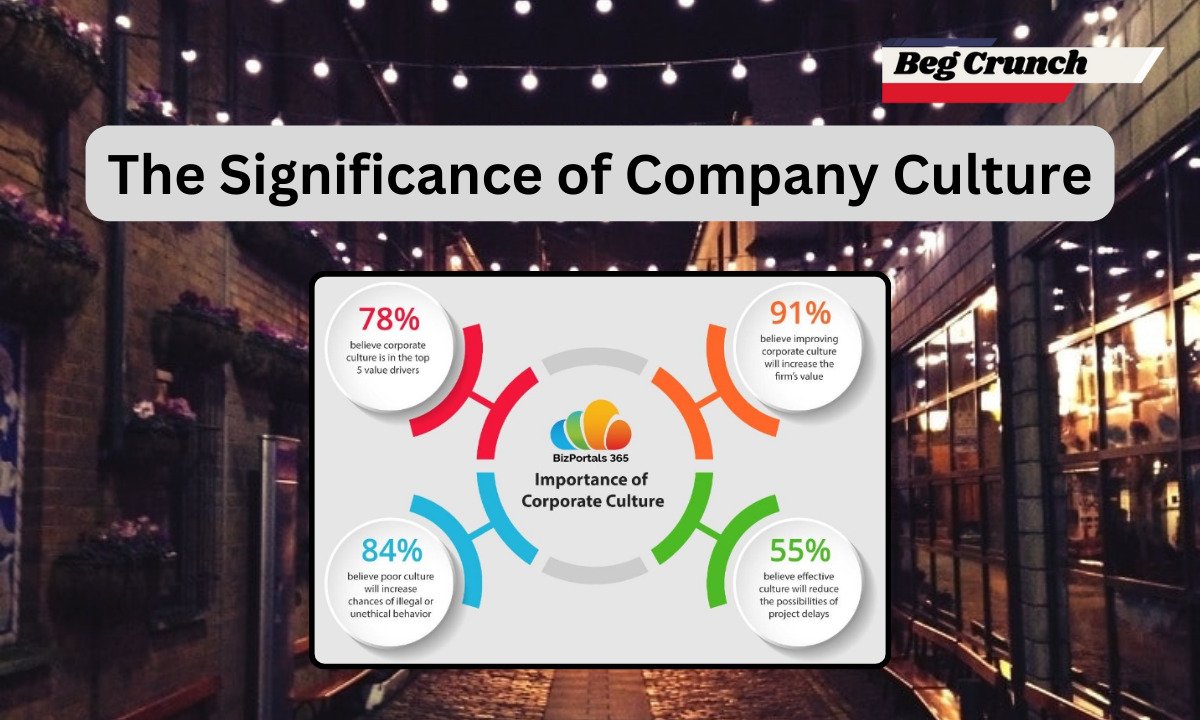Building a Strong Foundation: The Significance of Company Culture
In today’s fast-paced business world, company culture has emerged as a pivotal factor in determining an organization’s success. It’s no longer just a buzzword; it’s a fundamental aspect that can shape the destiny of a company. In this article, we’ll delve deep into the significance of company culture, exploring why it matters, how to build a strong foundation for it, and answering frequently asked questions along the way.
The Essence of Company Culture
What is Company Culture?
Company culture is a multifaceted concept that serves as the heartbeat of an organization. Beyond its simplistic definition, it is an intricate web of shared values, beliefs, and behaviors that shape how employees interact within a workplace and approach their tasks. At its core, company culture represents the collective personality of an organization.
Company Culture’s Effect on Employee Engagement
Company culture is not a superficial notion; it wields profound influence. One of its primary impacts is on employee engagement. When a strong, positive culture is in place, employees are more likely to feel connected to their work and their colleagues.
They derive a sense of purpose from the alignment of their values with those of the organization. This, in turn, fuels higher levels of job satisfaction, productivity, and retention.
Cultivating Innovation through Company Culture
Innovation flourishes in an environment where company culture encourages creativity and risk-taking. A culture that fosters open communication and collaboration provides a fertile ground for new ideas to take root. It empowers employees to voice their opinions, experiment with novel approaches, and challenge the status quo, ultimately driving the organization forward through innovation.
Company Culture’s Ripple Effect on Business Performance
Company culture doesn’t just affect individual employees; it has a ripple effect on overall business performance. A positive culture enhances teamwork, cooperation, and morale, which, in turn, leads to better customer experiences and improved products or services. Furthermore, it can be a significant factor in attracting top talent and retaining them, thus reducing recruitment costs and enhancing the organization’s competitiveness.
Why Does Company Culture Matter?
- Employee Engagement: A strong company culture fosters a sense of belonging and purpose among employees. When employees feel connected to their workplace, they are more likely to be engaged, which, in turn, leads to higher productivity and job satisfaction.
- Attracting Top Talent: A positive company culture acts as a magnet for top talent. Potential employees are increasingly looking beyond salary and benefits; they want to work in a place where they share values and feel a cultural fit.
- Innovation and Adaptability: A culture that encourages creativity and risk-taking can lead to innovation. Companies with adaptive cultures are better equipped to navigate change and disruption.
- Employee Retention: Employees are more likely to stay with a company that values their well-being and development. Reducing turnover can save an organization significant time and resources.
- Brand Image: A strong company culture positively influences your brand’s image. It can attract loyal customers who appreciate the values your company represents.
Building a Strong Foundation for Company Culture
1. Define Your Core Values
Begin by identifying the values that are most important to your organization. What principles guide your decision-making? Once you’ve determined these core values, communicate them clearly to your employees.
2. Lead by Example
Leaders should embody the values and behaviors they want to promote within the organization. When leadership sets the standard, employees are more likely to follow suit.
3. Involve Employees
Encourage staff members to actively contribute to culture molding. Their input and ideas can be invaluable in fostering a sense of ownership and alignment.
4. Communication is Key
Effective communication is vital in building and maintaining company culture. Keep employees informed about company goals, changes, and achievements.
5. Recognize and Reward
Employees that exemplify the ideal culture should be recognized and rewarded. Recognition reinforces the behaviors you want to see more of.
6. Continuous Evaluation and Adaptation
Company culture isn’t static. Regularly assess your culture’s effectiveness and be prepared to adapt as your organization evolves.
FAQs
Q1: How long does it take to establish a strong company culture?
The timeline for building a strong company culture varies depending on several factors, including the starting point, the level of commitment, and the size of the organization. From a few months to several years, it may take. The key is consistency and dedication to the cultural values.
Q2: Can a company culture change over time?
Yes, company culture can evolve. As organizations grow, adapt to new challenges, or undergo leadership changes, their culture may shift. It’s essential to manage these changes intentionally to ensure they align with your core values.
Q3: What if employees resist cultural changes?
Resistance to cultural changes is common, especially if employees are accustomed to a different way of doing things. To overcome resistance, involve employees in the change process, communicate the reasons behind the change, and provide support and training as needed.
Q4: Is it possible to have a successful company without a strong culture?
While it’s possible for a company to achieve short-term success without a strong culture, long-term sustainability and employee satisfaction often depend on a healthy culture. A strong culture can help an organization weather storms and remain competitive in the long run.
Conclusion
Company culture is not a mere afterthought; it’s the bedrock upon which successful organizations are built. By understanding its significance, actively nurturing it, and addressing common questions and challenges, you can ensure that your company culture becomes a powerful force that propels your organization toward excellence. Remember, it’s not just about what you do but how you do it that truly matters in the world of business.






